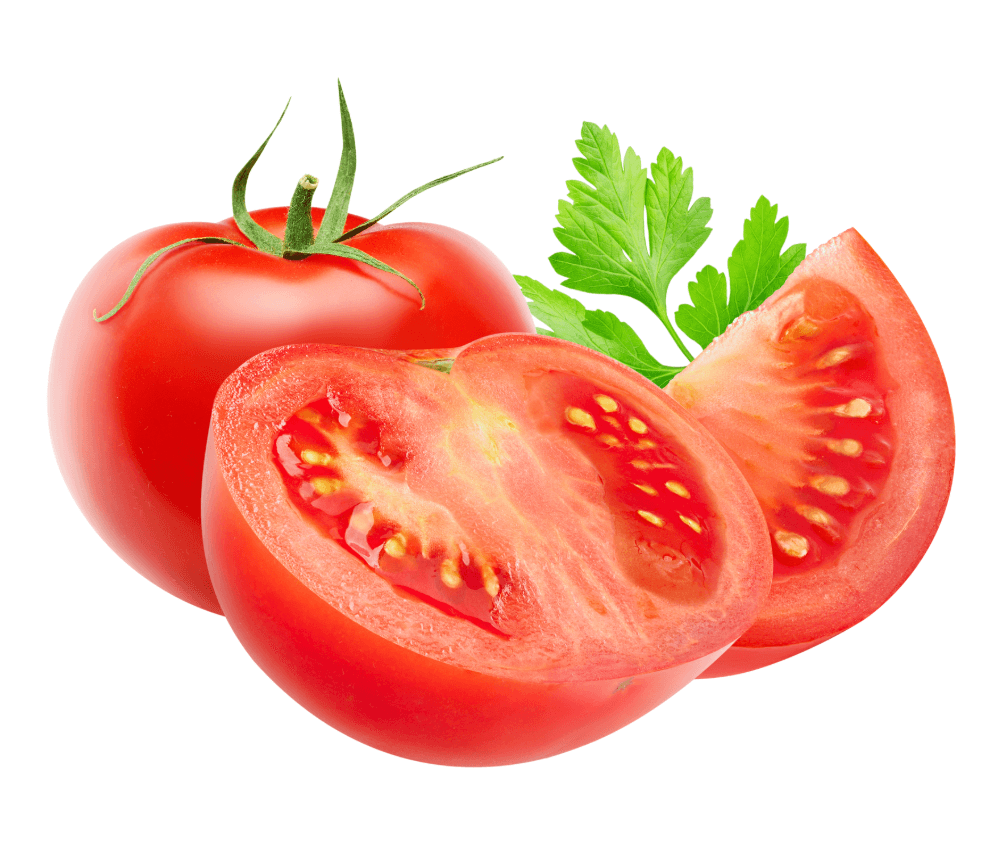Tomatoes
Ripe, red tomato flesh can be safely fed to dogs and cats and can offer several health benefits. Tomatoes contain nutrients such as lycopene, vitamin C, vitamin K, calcium, and dietary fiber, all of which can support your pet’s health.

Nutritional Benefits
Lycopene
Acts as a powerful antioxidant and may help prevent cancer.
Vitamin C
Strengthens the immune system and promotes healthy skin.
Vitamin K
Helps with blood clotting and supports bone health.
Calcium
Aids in regulating blood pressure and maintaining normal muscle function.
Dietary Fiber
Promotes healthy digestion and can help prevent constipation.
Are Tomato Plants and Stems Toxic?
When feeding tomatoes, you generally don’t need to worry about toxicity as long as the fruit is fully ripe. Tomatoes contain a natural compound called tomatine, which can be toxic in large amounts and is found mainly in the leaves, stems, and flowers of the plant.
For most pets, small amounts of tomatine don’t cause significant issues, but in some animals it can lead to digestive upset, vomiting, or diarrhea. Tomatine is present in much higher concentrations in unripe (green) tomatoes and plant parts and is almost non-existent in fully ripe fruit.
Cautions When Feeding Tomatoes
- Remove all stems, leaves, and green parts before feeding—they can contain tomatine.
- Avoid overfeeding: Excessive amounts may cause digestive issues (vomiting or diarrhea).
- Introduce gradually: If it’s the first time, start with a small amount and monitor your pet’s reaction.
- Wash thoroughly: Always wash tomatoes to remove dirt, pesticides, or residues.
If you follow these precautions, dogs and cats can enjoy tomatoes as a healthy and safe treat on occasion.
Summary
Ripe tomatoes provide lycopene, vitamins C and K, calcium, and fiber. Feed small portions of the fully ripe fruit only, remove all stems/leaves/green parts, wash well, and introduce slowly to avoid digestive upset.